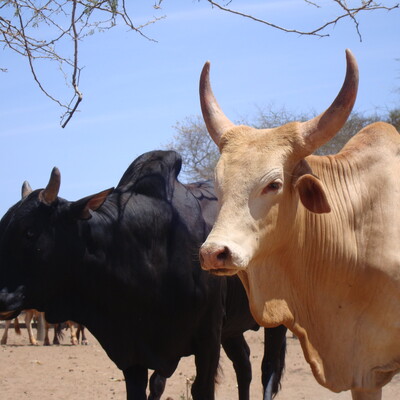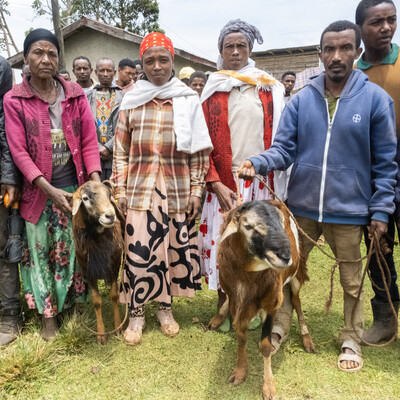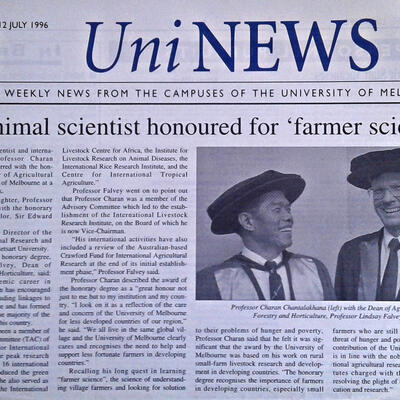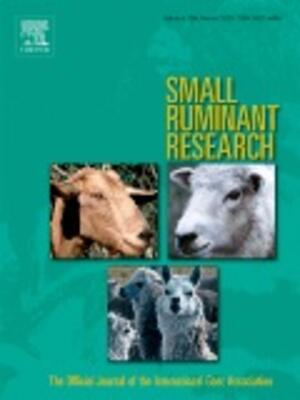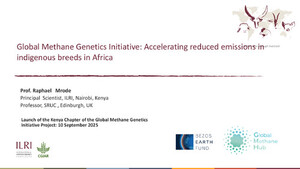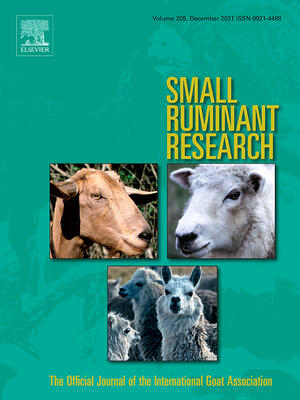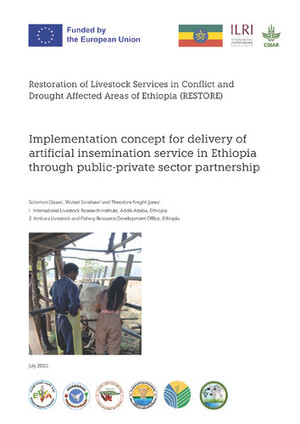
Madagascar officially launches their Master Plan for the livestock sector
The government of the Republic of Madagascar, through the Regional Food Systems Resilience Program (FSRP) of the World Bank, with the support of the International Livestock Research Institute (ILRI), has just launched its Master Plan for the Livestock Sector in Madagascar (PDSEM) in Antananarivo.
Livestock breeding, the second major economic activity after agriculture, plays an essential cultural, social and economic role in Madagascar, contributing significantly to food security and the fight against poverty. Around 70% of Malagasy households practice livestock breeding, with three quarters of these households located in rural areas. This activity accounts for 60% of the income of rural households. Despite numerous efforts made, the livestock sector still faces major challenges linked to lack of investment, low productivity, insufficient health coverage and the absence of reliable data. Finding solutions to address livestock sector challenges can contribute significantly to improving livelihoods and help the sector reach its highest potential.
During the week of 22 April 2024, Madagascar launched the PDSEM. Ministry of Agriculture and Livestock (MINAE), through FSRP, will develop the PDSEM in collaboration with the World Bank, the French Center for International Cooperation in Agricultural Research for Development (CIRAD), ILRI and national livestock institutions. The development of the PDSEM will provide a roadmap for government, private sector and development partners to make evidence-based investments into the sector, while considering the social and environmental factors that influence livestock farming in the country.
The PDSEM is timely and aligns with national priorities. Livestock value chains have already been prioritized, namely, poultry, zebu, bovine dairy, pork and small ruminants being the top five, with the objective being to improve sustainable productivity for the whole livestock sector, while strengthening value chain competitiveness.
The director general of agriculture and livestock at MINAE, Michel Anondraka, described this plan as a ‘Strategic roadmap for sustainable development and effective management of the livestock sector in the long term.’ Furthermore, Jao Andrianaivo, president of Malagasy Professional Livestock (MPE), highlighted the importance of the livestock sector for food security and national development, insisting on the need for climate-smart animal production.
Anondraka and Andrianaivo hope that the PDSEM will address the multiple challenges of the sector, including the lack of pastures and quality feed, animal health problems, the high cost of veterinary products, the tracing and circulation of herds, climate change, socio-economic constraints and research institution capacity.
Over the past decade, ILRI has supported countries in Africa and Asia to develop sector strategies and investment roadmaps for the livestock sector, working with FAO and CIRAD as consortium partners. ‘Convincing results have already been obtained in these countries, demonstrating the positive impact of master plans on the development of the livestock sector, affirmed Anthony Whitbread, programme leader of Sustainable Livestock Systems at ILRI, who was in Antananarivo representing Appolinaire Djikeng, director general of ILRI, at the launch ceremony.
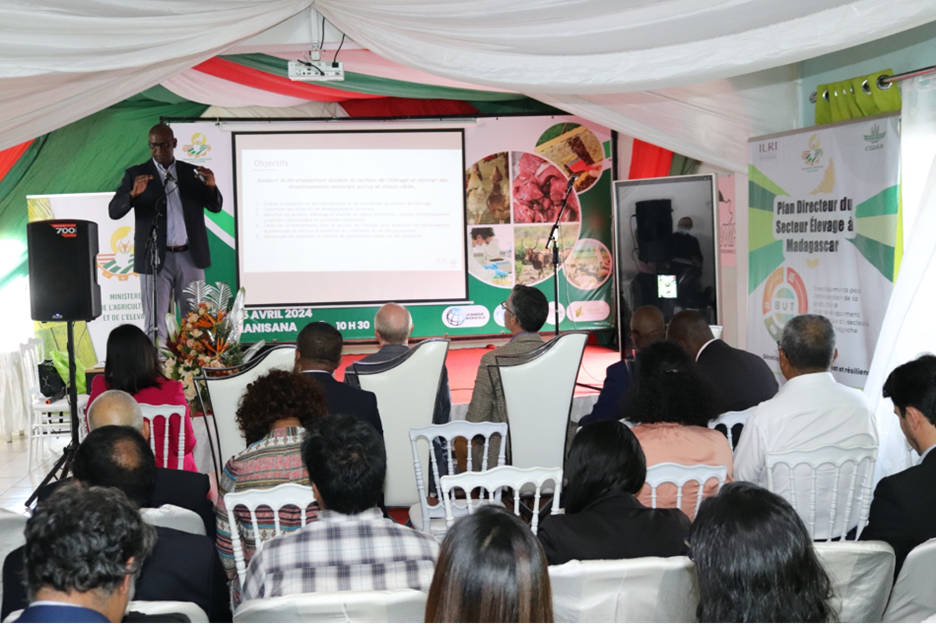
Over the next 18 months, ILRI will work with stakeholders to analyze the livestock sector and develop investment roadmaps for priority value chains. Abdrahmane Wane, ILRI regional representative in West Africa and project coordinator, stressed that the State will decide the most suitable scenario among those proposed by the PDSEM. The plan will serve as a framework for investments, building on the country's existing strategies and plans, such as the General State Policy (PGE) and the Madagascar Emergence Initiative.
Wane concluded the launching ceremony by thanking the financial and technical partners, notably the World Bank, for financing the work, noting that the analysis of the livestock sector enabled the development of detailed five-year investment plans, which constitute the livestock value chain roadmaps, each with targeted interventions, investment budget activities and well-defined timelines.
This launch was followed by a training workshop for members of the technical committee, organized by the Ministry of Agriculture and Livestock (MINAE), to plan out a process for PDSEM development.
For more information on the activities of the PDSEM, please contact Abdrahmane Wane (a.wane@cgiar.org) and Isabelle Baltenweck (i.baltenweck@cgiar.org) of ILRI.
For more information on ILRI's global Livestock Master Plan activities, visit https://www.ilri.org/livestock-master-plans






